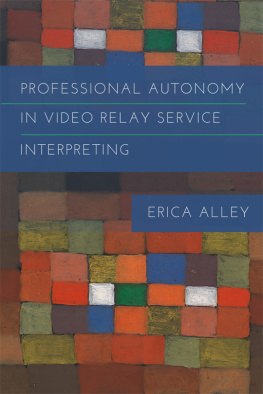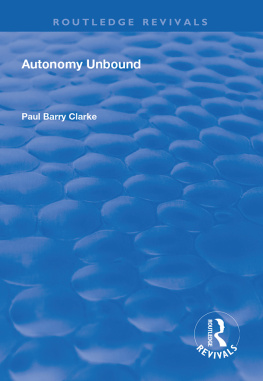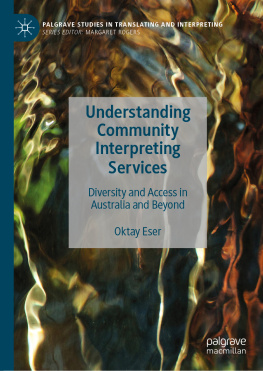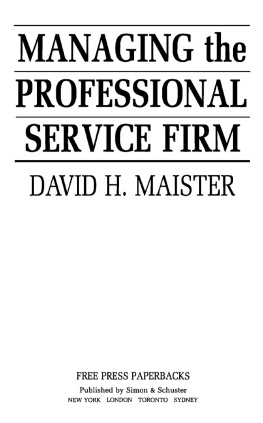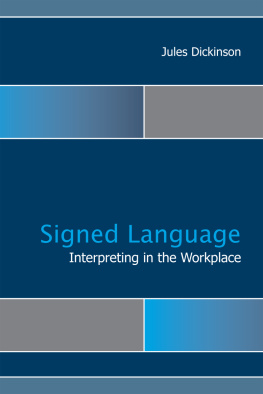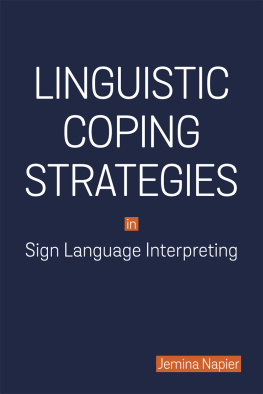Erica Alley - Professional Autonomy in Video Relay Service Interpreting
Here you can read online Erica Alley - Professional Autonomy in Video Relay Service Interpreting full text of the book (entire story) in english for free. Download pdf and epub, get meaning, cover and reviews about this ebook. year: 2019, publisher: Gallaudet University Press, genre: Politics. Description of the work, (preface) as well as reviews are available. Best literature library LitArk.com created for fans of good reading and offers a wide selection of genres:
Romance novel
Science fiction
Adventure
Detective
Science
History
Home and family
Prose
Art
Politics
Computer
Non-fiction
Religion
Business
Children
Humor
Choose a favorite category and find really read worthwhile books. Enjoy immersion in the world of imagination, feel the emotions of the characters or learn something new for yourself, make an fascinating discovery.
- Book:Professional Autonomy in Video Relay Service Interpreting
- Author:
- Publisher:Gallaudet University Press
- Genre:
- Year:2019
- Rating:3 / 5
- Favourites:Add to favourites
- Your mark:
Professional Autonomy in Video Relay Service Interpreting: summary, description and annotation
We offer to read an annotation, description, summary or preface (depends on what the author of the book "Professional Autonomy in Video Relay Service Interpreting" wrote himself). If you haven't found the necessary information about the book — write in the comments, we will try to find it.
Video relay service (VRS) is a federally funded service that provides telecommunications access for deaf people. It is also a for-profit industry with guidelines that may limit the autonomy of the sign language interpreters who work in VRS settings. In this volume, Erica Alley examines how VRS interpreters, or Communication Assistants, exercise professional autonomy despite the constraints that arise from rules and regulations established by federal agencies and corporate entities. Through interviews with VRS interpreters, Alley reveals the balance they must achieve in providing effective customer service while meeting the quantitative measures of success imposed by their employer in a highly structured call center environment.
Alley considers the question of how VRS fits into the professional field of interpreting, and discovers thatregardless of the profit-focused mentality of VRS providersinterpreters make decisions with the goal of creating quality customer service experiences for deaf consumers, even if it means breaking the rules. Her findings shed light on the decision-making process of interpreters and how their actions are governed by principles of self-care, care for colleagues, and concern for the quality of services provided. Professional Autonomy in Video Relay Service Interpreting is essential reading in interpreter education courses and interpreter training programs.
Erica Alley: author's other books
Who wrote Professional Autonomy in Video Relay Service Interpreting? Find out the surname, the name of the author of the book and a list of all author's works by series.

